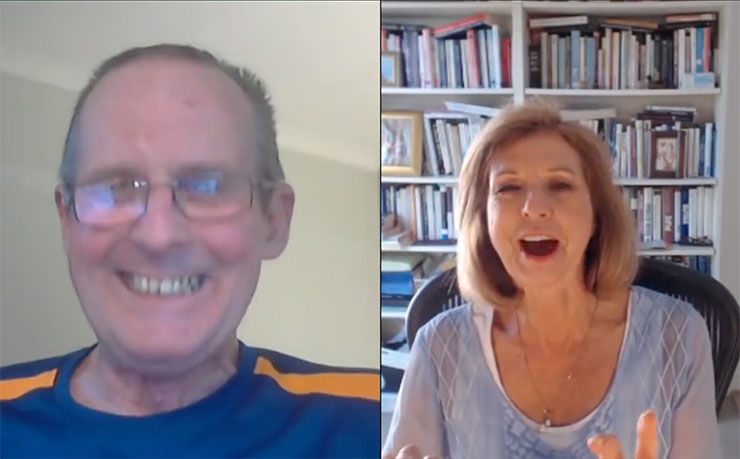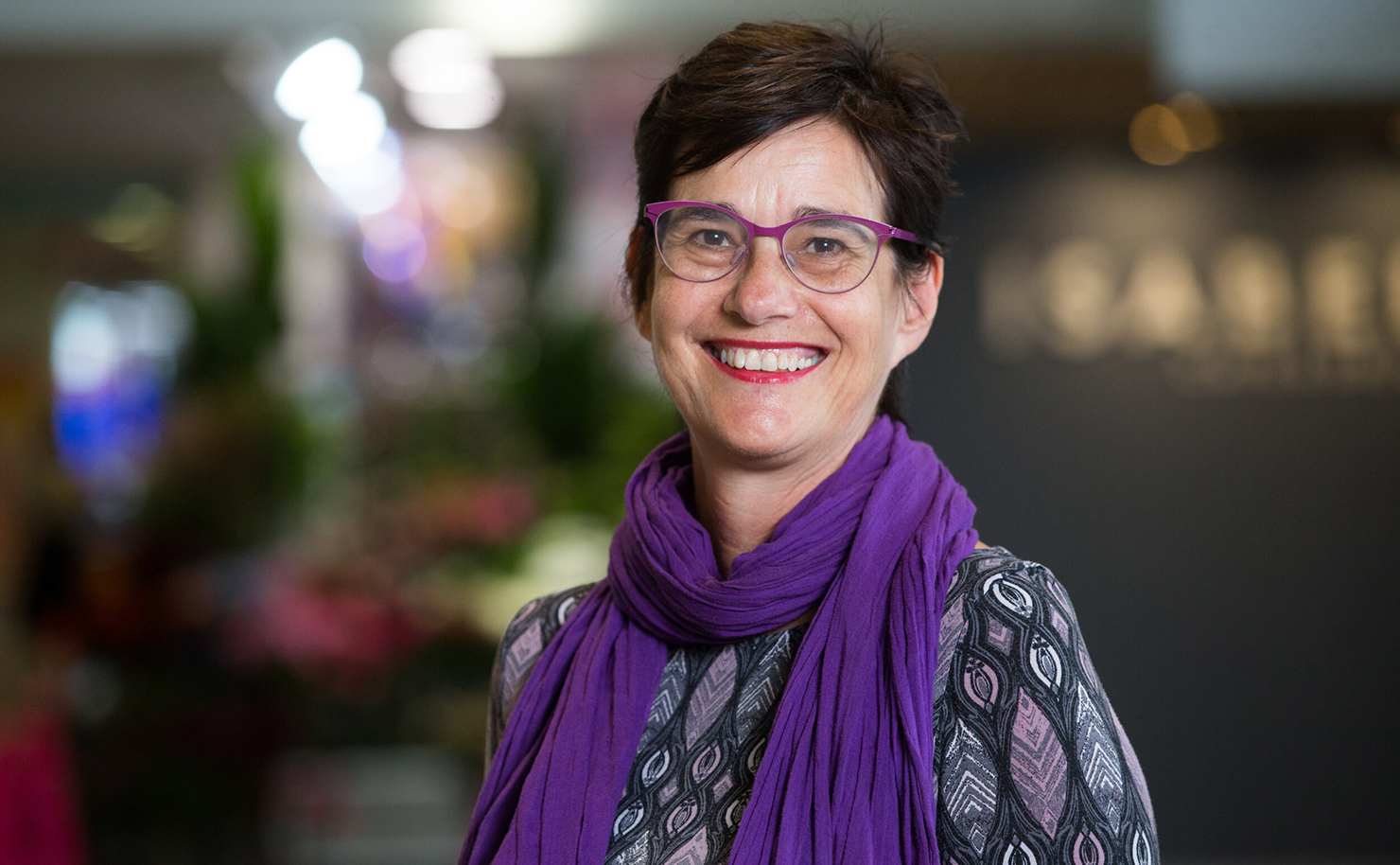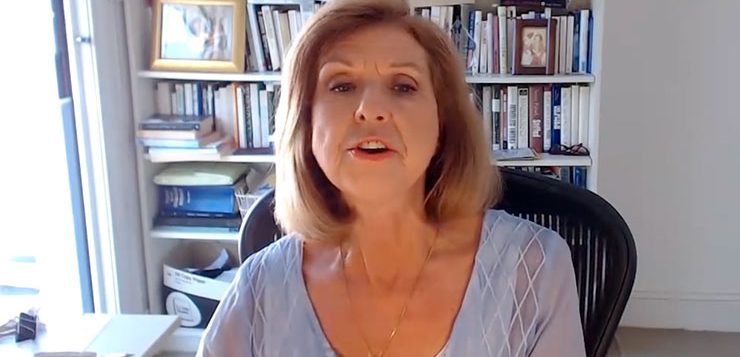Calls to strip Bettina Arndt of her AM, while appropriate, are the band-aid to a much bigger problem, writes Dr Kate Johnson from Doctors Against Violence Towards Women.
In January, Bettina Arndt, a controversial social commentator and men’s rights activist, was awarded the Order of Australia Medal for services to gender equity. Since then calls have grown for the award to be rescinded, including a motion in the federal parliament supported by all Senators with exception of two from One Nation – Pauline Hanson and Malcolm Roberts.
The reaction followed a tweet in which Ms Arndt congratulated Queensland Police for “keeping an open mind… including the possibility that Rowan Baxter might have been driven too far,” after this man murdered his ex-wife, Hannah, and their three children by dousing them in petrol and setting the car on fire.
While politicians may be outraged now, voices like Ms Arndt’s have been influential in Australia for far too long, despite their lack of expertise.

Ms Arndt, in particular, took on advisory roles on family law and child support in the 2000s. She was a supporter of John Howard’s 2006 amendments to the Family Law Act 1975, which prioritized a child’s rights to both parents, to fix a supposed bias in the courts that left too many children fatherless after divorce. The amendments had explicit exceptions in the case of domestic abuse. However, the evidence suggests that, now, instead of an anti-male bias, the family court is awarding parental rights to abusive men, putting those children in danger.
Consider Ash’s* experience.
Her ex-husband was a drug abuser, who frequently left beer cans, cigarettes and pornography around the home. He was physically and psychologically abusive toward Ash and once strangled her, a red flag for future homicide.
The children witnessed this violence. One of them also developed precocious sexualised behaviours due to exposure to pornography. Despite this, when Ash left, her ex-husband was granted full custody. The reason? Ash had symptoms of trauma, which were labelled “borderline personality”. Apparently, this meant she was unable to parent her children safely.
With his court-sanctioned power, Ash’s ex limits her visits with the children and does not allow them to speak on the phone, despite their express wishes to see her more. Her children are developing signs of trauma, from eating disorders to anxiety, which are not being treated.
Nevertheless: Men’s Rights Activists like Ms Arndt claim that the family court is biased against men. They say women use false accusations of violence to gain unfair advantages, that the court allows women to flaunt orders requiring them to allow fathers time with their children, and that men are being driven to suicide by women lying about domestic violence.
They cherry pick and misrepresent statistics to suit these claims and call for an “open mind,” an argument that appears at its most absurd when a man has just “incinerated his children alive” (Antony Green, ABC). But is abuse ever acceptable?
The statistics clearly show that women are disproportionately at risk of abuse from a current or former partner. They show that women, far from lying, underreport violence, and that false claims of intimate partner violence are actually rare. With on average one woman dying per week and eight women hospitalised per day due to domestic violence, why do we continue to regard women with suspicion, while rewarding MRAs? Why do we seek ‘balance’ where there should be none?
The amendments to Family Law in 2006 and 2012 have led to children spending more time with an abusive (usually male) parent. Women are explicitly told not to report abuse by their lawyers, for fear of being labelled an “alienating parent” and having their children taken away.
An ABC investigation published in June 2019 documented several cases where children have been placed in the care of an abusive parent against their will. Months earlier, the ALRC Family Law Review published the first comprehensive review of the family law system since 1975 and made 60 recommendations. First and foremost, they called on the courts to re-prioritise the protection of children.
There is no Australian data following up children who are placed with potential abusers. However, recent data from New Zealand and the USA demonstrate the likely scale of hidden harms.
In New Zealand, children placed with an abusive parent frequently suffered from mental health issues, including panic attacks, eating disorders, depression and self-harming behaviour. Nearly 60% suffered from anxiety, poor sleep and stomach aches. The issues were more prominent when a child was forced into an abuser’s care, following refusal.
Similarly, an American case series looking in depth into 27 cases where children were given into custody of an abusive parent showed 88% of these children reported new incidents of abuse, and most suffered from deterioration in their physical and mental health.

Similar trends occur in Australia. Professor Kelsey Hegarty, a general practitioner and chair of research into Family Violence at the University of Melbourne says that she has seen “a number of cases, where the mother is protective, the father abusive and children are given partly or wholly into the abuser’s care. The abuser then continues to control the mother through the courts, while the children are left with a good enough or bad parent.”
Dr Karen Williams, a psychiatrist specialising in trauma observes that women are often penalised for the impact of trauma on their mental health.
“Parental alienation is commonly used against women who raise abuse, despite the lack of evidence that the syndrome even exists. There is no accepted standard for court psychologists or psychiatrists,” Dr Williams says.
“Some of the assessments make basic errors that would never be allowed in the college exams: like making judgement on personality on one assessment. As a result women labelled with borderline personality disorder, a disorder that results from trauma, have adverse judgements passed on their parenting skills, but borderline personality does not preclude effective parenting.
“Worse still, the testimony of children is often ignored or used as evidence of maternal manipulation. Women are left in an absurd position where if they leave a violent relationship, lawyers tell them not to raise abuse as she will be accused of being an alienator, but with evidence of abuse, FACS gets involved and sees the mother as a non-protective parent as she did not raise the abuse. She literally cannot win. And domestic abuse is not benign, we know it harms children. We are systematically traumatising these children.”
Experts in the sector have no doubt that the family courts are causing harm to women and children. The data shows that men are advantaged in the family court. They receive more time with their children if they go through the court process rather than mediation, even though the small percentage of cases that end up in the courts are more likely to involve domestic abuse.
Paternal rights are prioritised over child safety. The harm this causes is hidden, because inexplicably, there is no systematic follow up after parenting orders are given. The Family Court and their staff are unaccountable for their decisions.
By contrast, claims that the Family Court has an anti-male bias and drives men to suicide are based on a small number of anecdotes.
Continuing to reward and amplify the voices of MRAs, like Bettina Arndt, does a disservice to the work of experts in the domestic violence sector and invalidates the voices of victims, like Hannah Clarke.
It stops us from acting on the drivers of intimate partner violence across all services, to protect victims and help perpetrators change.
It tangibly holds us back from true Family Court reform, leaving Ash and her children in danger.
We must revoke Bettina Arndt’s Order of Australia and we must use the evidence of experts to improve the protections for victims, to protect people like Hannah and Ash and their children.
If we don’t, like Antony Green to Bettina, where is our humanity?
*Ash’s name has been changed to protect her identity.
Donate To New Matilda
New Matilda is a small, independent media outlet. We survive through reader contributions, and never losing a lawsuit. If you got something from this article, giving something back helps us to continue speaking truth to power. Every little bit counts.




